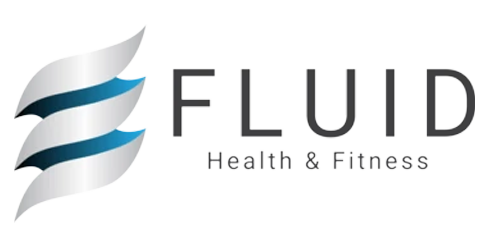
May 26 , 2021
0 Comments
Sleep & Recovery | Overview
The National Sleep Foundation recommends that adults should get at least 7 hours of sleep per night. This is important because sleep is nature’s regeneration process. It helps us to clear our minds (in terms of mood and stress), restores our energy, boosts healing processes and increases our mental acuity (better memory, improved problem-solving, and clearer judgment) as well as improving physical movement and reaction time.
In addition to the aforementioned benefits, there is a strong relationship between sleep and recovery and metabolism. To get a more thorough understanding of the link, we will look at the role of the nervous system.
General Background on the Nervous System
The nervous system, an intricate grouping of neurons and nerves responsible for the exchange of signals between the brain and many different parts of the body, plays a vital role in movement, heart rate regulation, breathing, digestion, and sleep as well as other essential activities. It can be broken down into two main systems: the central nervous system (CNS) and the peripheral nervous system (PNS). The central nervous system exclusively consists of the brain, spinal cord, and the connecting/surrounding nerve tissue. All the nerves and ganglia (bundles of nerves) outside this specific area are considered part of the peripheral nervous system. For the purposes of today’s topic on sleep and recovery, we’ll be primarily focusing on the latter.
The Peripheral Nervous System
The PNS serves as the intermediary communication center between the CNS and the rest of the body (organs and limbs). It can be further divided into the somatic nervous system (responsible for voluntary motor and sensory information processing, essentially physical activity) and the autonomic nervous system (responsible for involuntary processes that we don’t control).
The Autonomic Nervous System
This can be broken down even further, as the autonomic nervous system consists of the sympathetic nervous system, parasympathetic nervous system, and the enteric nervous system.
The sympathetic nervous system is responsible for our excitatory reactions, such as the stress response, increasing heart rate and blood pressure, restricting blood flow, and slowing down digestion.
In contrast, the parasympathetic nervous system is the balancing force to the sympathetic nervous system. Although it is responsible for regulating many bodily functions (e.g. producing bodily fluids, waste elimination, sexual arousal, crying, heart rate and body temperature maintenance, digestion, and sleep), we will be pinpointing its role on sleep and digestion. It has an integral role in increasing movement in the digestive tract and blood flow, and lowering heart rate and blood pressure. This is because parasympathetic nerves interact with the vagus nerve, which helps regulate heart rate, breathing, and digestive functioning.
Last but not least, the enteric nervous system is exclusively located in the digestive tract. In layman’s terms, it is often referred to as “the gut”.
How the Autonomic Nervous System Affects Sleep and Recovery
The sympathetic and parasympathetic nervous systems both serve important functions; however, they often work in opposition. If you are stressed out or tense (in other words, the sympathetic nervous system is at work), it can make it difficult to relax and go to sleep (in other words, the parasympathetic activity can be hindered by the excitatory reactions of the sympathetic nervous system). In fact, too much sympathetic nerve activity can disrupt sleep. This, in turn, can create more physiological and emotional stress which compounds the issue further. Without enough consistent sleep, the body becomes inefficient at regulating bodily processes, such as the metabolism, gut, and obtaining and using energy. This means that the body’s capacity and resources to distribute the energy to do many of its essential tasks well become limited. As a result, learning how to relax and to de-stress so that the parasympathetic nervous system can do its job is paramount to one’s sleep hygiene and overall health.
What Are Some Tools to Help with Sleep and Recovery?
Have a calming routine – in order to sleep well through the night, the mind and body need to be in a peaceful, relaxed state. Otherwise, tossing and turning and waking up during the nighttime are highly likely possibilities. Some ideas include: taking a soothing bath, listening to relaxing music, reading a book, meditation and breathing exercises, taking a walk after dinner, snuggling with your pets and/or favorite person, etc.
Limit the use of electronics and bright lights a couple hours before you go to bed – interacting with electronics, such as phones, tablets, and computers, can keep the brain stimulated with the constant stream of light and the onslaught of new information that we receive through interacting with the Internet, games, and apps.
Practice self-care and boundaries – Each person has a specific time frame of when his or her body prefers to rest. It’s important to pay attention to when our bodies are telling us that we need to go to bed, because if we don’t, we end up suffering from a sleep deficit and will try to play catch-up for the next few days. So, if a friend or partner wants you to stay out later than you feel comfortable with, it is okay to assert boundaries to ensure getting some good sleep. We often underestimate the practical benefits of sleep.
Avoid eating large meals or being hungry right before going to bed – experiencing feelings of being overstuffed or hunger pain can cause discomfort while trying to fall asleep. If you are hungry right before bed, a light snack or even just drinking a glass of water may be advisable.
Maintaining a balanced diet regulates the body - A diet full of fruits (at least 2 servings per day), vegetables (at least 3 servings per day), lean meats and other nutritious proteins (at least 2 servings per day and healthy fats, can help to regulate bodily processes, such as sleep and recovery. However, if you are struggling to get in all your nutrients on a consistent basis, we offer the Thorne Multi-V, a NSF for Sport certified multivitamin, to help you supplement your diet.



